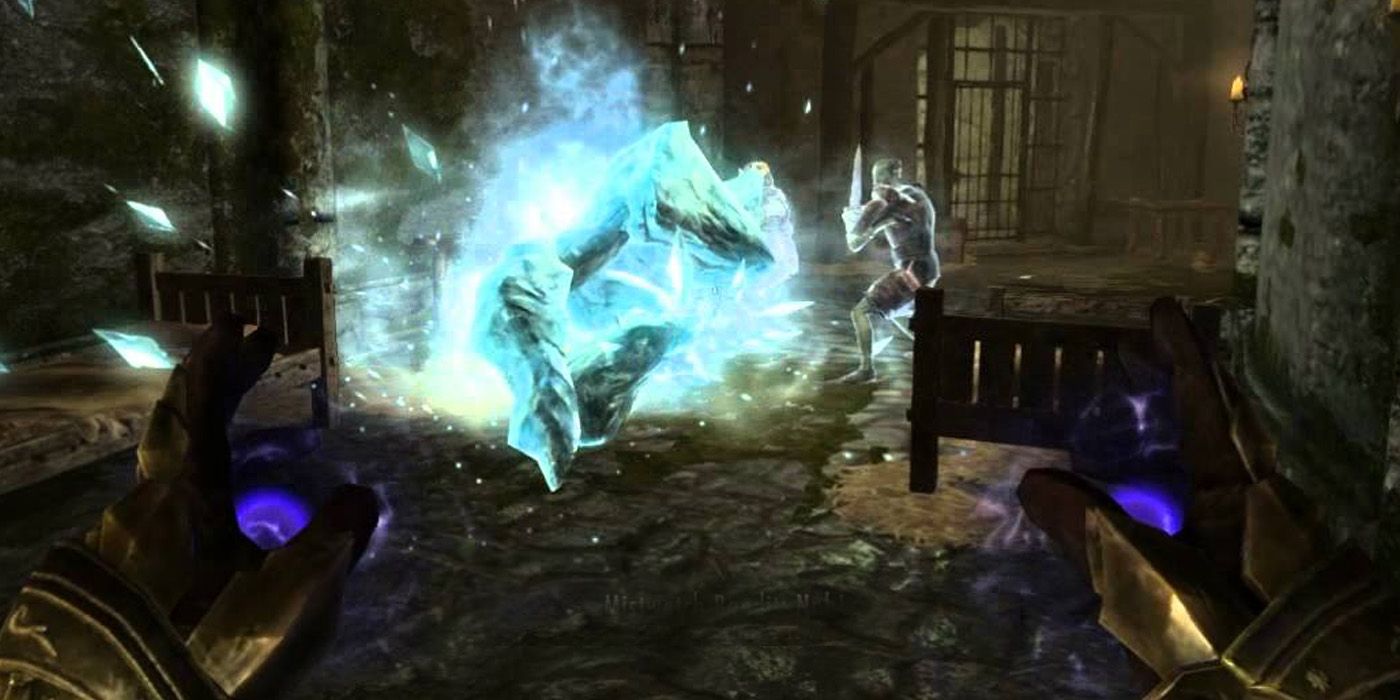

This is still in evidence today: Modern English grammar and syntax are more similar to modern Scandinavian languages than to Old English. By the time the Norman conquest brought the irreversible influence of French, Old English had already been transformed beyond its Anglo-Saxon roots. Thanks to the cross-cultural fermentation that occurred in the Danelaw, the English language is much closer to those of its Scandinavian neighbors than many acknowledge. Much of the Danelaw bordered swamps and alluvial plains, so it’s no surprise that many Old Norse words for dirty, mucky things still survive in English: English This was especially useful in Viking-inhabited northern England, where both flatr and rogg (rugged) terrain are often shrouded in fok, and oppressed by gustr of wind and lagr (low) ský (clouds). Old Norse words are good for describing bleikr landscapes and weather. Sleuth now means “detective,” but the original slóth meant “trail” or “track.” Snare, on the other hand, retains the original meaning of the Old Norse snara. Some words associated with hunting and trapping also come from the Vikings. Hús (house) + bóndi (occupier and tiller of soil)Īlthough most English animal names retain their Anglo-Saxon roots (cow, bear, hound, swine, chicken, etc.), the Vikings did bring a few Old Norse words to our animal vocabulary: English Loki’s daughter and ruler of the underworld One who inhabits the heath or open country Ironically, these savage berserkers also gave us many Old Norse words now central to our more “civilized” culture: English

Life in the Danelaw wasn’t all murder and mayhem, of course. Here are some more violent Old Norse words we can thank the Vikings for: EnglishĪ Viking warrior who entered battle wearing

Just look at a Viking the rangr (wrong) way, and he might þrysta (thrust) a knifr into your skulle. They didn’t just bring death and destruction to medieval England, they brought really cool words for death and destruction. If the Vikings are famous for one thing, it’s their obsession with war. The similarity of these names points to the common ancestry shared by the various Germanic tribes in prehistoric northern Europe, centuries before their descendants clashed on England’s shores. “Tuesday,” “Wednesday” and “Friday” are sometimes also attributed to the Norse gods Tyr, Odin and Freya respectively, but the weekdays are actually named for the Anglo-Saxon equivalents of these gods, Tiw, Wodan and Friga. The most obvious Old Norse influence on modern English is the word Thursday ( Þorsdagr), which you might guess means “Thor’s day.” Þeirra (their) language evolved into the modern-day Scandinavian languages, but þeir (they) also gave English the gift of hundreds of words. Traust me, þó (though) it may seem oddi at first, we er still very líkligr to use the same words the Vikings did in our everyday speech. However, the more successful and longer-lasting Norman conquest in 1066 marked the end of the Viking era and virtually erased Danish influence in almost all aspects of English culture but one: its effect on the development of the English language. England even had Danish kings from 1018 to 1042. The earliest Viking activity in England did consist of coastal raids, but by the 870s, the Danes had traded sword for plow and were settled across most of Northern England in an area governed by treaties known as the Danelaw. In the popular imagination, the Vikings were essentially pirates from the fjords of Denmark and Norway who descended on medieval England like a bloodthirsty frat party - they pillaged, murdered and razed villages, only to sail right back across the North Sea with their loot. The Old Norse word víking meant an overseas expedition, and a vikingr was someone who went on one of these expeditions. Let’s take a look at some Old Norse words that have withstood the test of time by fighting their way into our modern vocabulary. The English we speak today is riddled with lingual remnants leftover from a time when wearing ornately-decorated helmets was all the rage. But this take on English leaves out a very important piece of the linguistic puzzle: Old Norse, the language of the Vikings. Modern English is commonly thought of as a West Germanic language, with lots of French and, thanks to the church, Latin influence thrown in the mix.


 0 kommentar(er)
0 kommentar(er)
